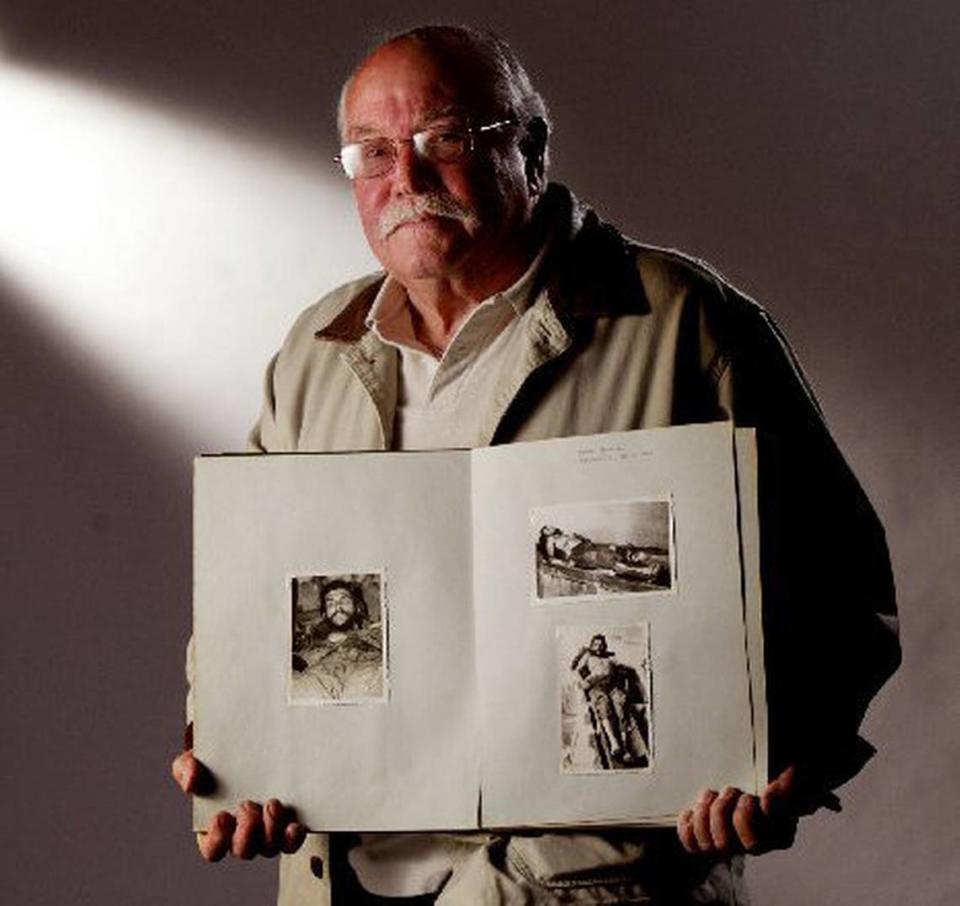Cuba must pay Cuban American brothers $2.6 billion for torture, federal judge says
- Oops!Something went wrong.Please try again later.
A Colorado federal judge ruled that Cuba must pay $2.59 billion in damages to the children of Gustavo Villoldo Argilagos, a prominent businessman with dual Cuban and American citizenship whose sons said was harassed and forced to commit suicide by Fidel Castro’s close ally Ernesto “Che” Guevara in 1959.
The default judgment granted by District Judge Nina Wang was a legal victory for brothers Alfredo and Gustavo Villoldo, who had spent several years trying to collect on an original $2.79 billion judgment against the Cuban government issued by a state court in Florida in 2011. The new ruling, signed on Sept. 1, would allow the brothers to collect on the state court judgment in Colorado, where they say Cuba has assets.
Cuba did not defend itself in court. The Cuban embassy in Washington did not immediately reply to a request for comment.

In March, Judge Wang had sided with the Villoldo brothers and agreed Cuba was liable for the death of Villoldo Argilagos and the torture of his son Gustavo, but was not convinced about the torture allegations against his brother Alfredo. She raised other legal questions she asked them to address in a new filing.
Because Cuba has not paid, the brothers, now in their eighties, have sought to collect the money by going after assets supposedly owned by the Cuban government in the United States. Still, several attempts in different states have failed.
Gustavo Villoldo, who lives in Miami, said he could not comment on the ruling because the litigation is ongoing.
Villoldo Argilagos, the son of an American mother and Cuban father who was given U.S. citizenship at birth, was a successful businessman who had studied law at Harvard University and business at the Wharton School at the University of Pennsylvania before amassing a fortune as the owner of one of the first General Motors dealerships in Cuba. But soon after Castro took power in January 1959, he was targeted because of his American citizenship and wealth, the original complaint says.
“Members of Castro’s security forces led by Ernesto ‘Che’ Guevara repeatedly accosted Mr. Villoldo and his family members at home and at their businesses,” the complaint says. “Che Guevara, members of the rebel army and members of the Ministerio del Interior continued to threaten Mr. Villoldo, and they forcibly removed him from his home with machine guns held to his throat on several occasions.”
Castro’s forces arrested his two sons and beat and tortured Gustavo, the complaint adds.
Guevara accused Villoldo Argilagos of treason, and he was told his family would be killed if he didn’t renounce his properties and kill himself, according to the allegations. He was found dead by apparent suicide on Feb. 16, 1959.
In her 2011 ruling, Miami Circuit Judge Beatrice Butchko found those acts amounted to terrorism and torture, which allows U.S. citizens to sue foreign states in U.S. courts despite a general principle of immunity granted by law to foreign governments.
All of Villoldo’s businesses, real estate properties, bank accounts and a farm were confiscated by Castro.

His sons fled to the United States after their father’s death, and Gustavo went on to take his revenge as a senior CIA operative who helped the Bolivian government track and kill Guevara in 1967. That, in turn, made him a target for assassination attempts allegedly orchestrated by Castro’s men, he told the Miami court.

